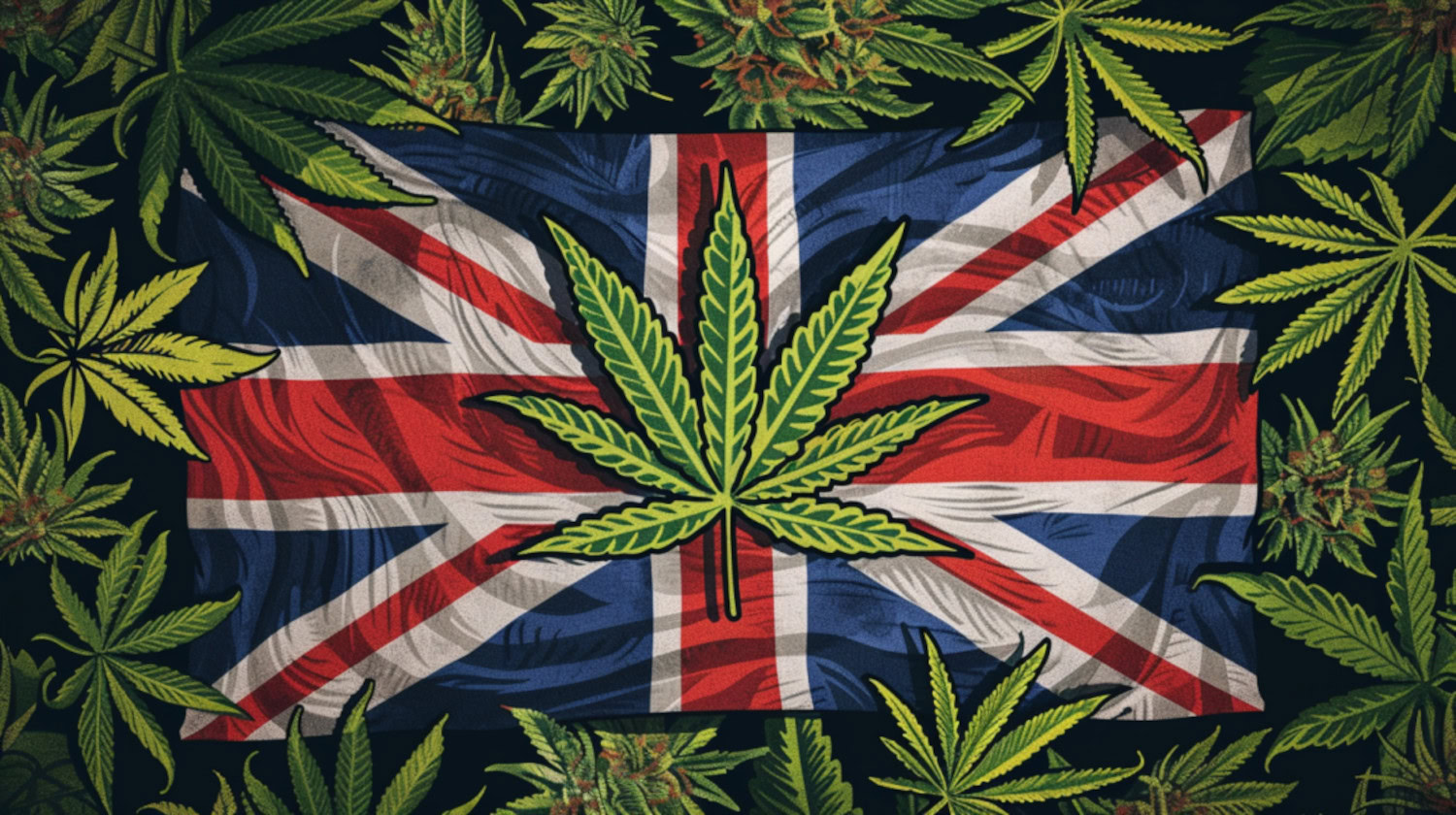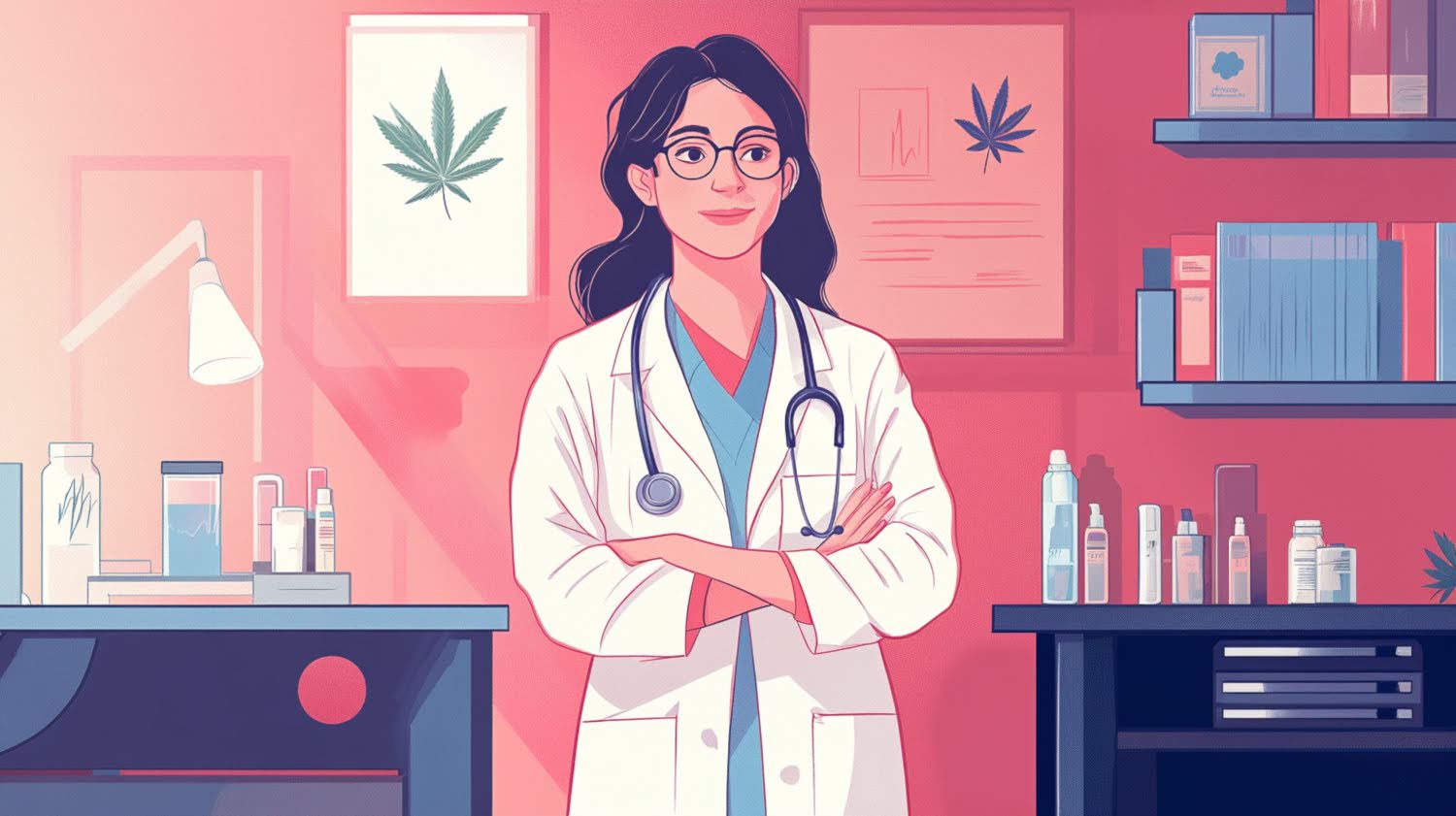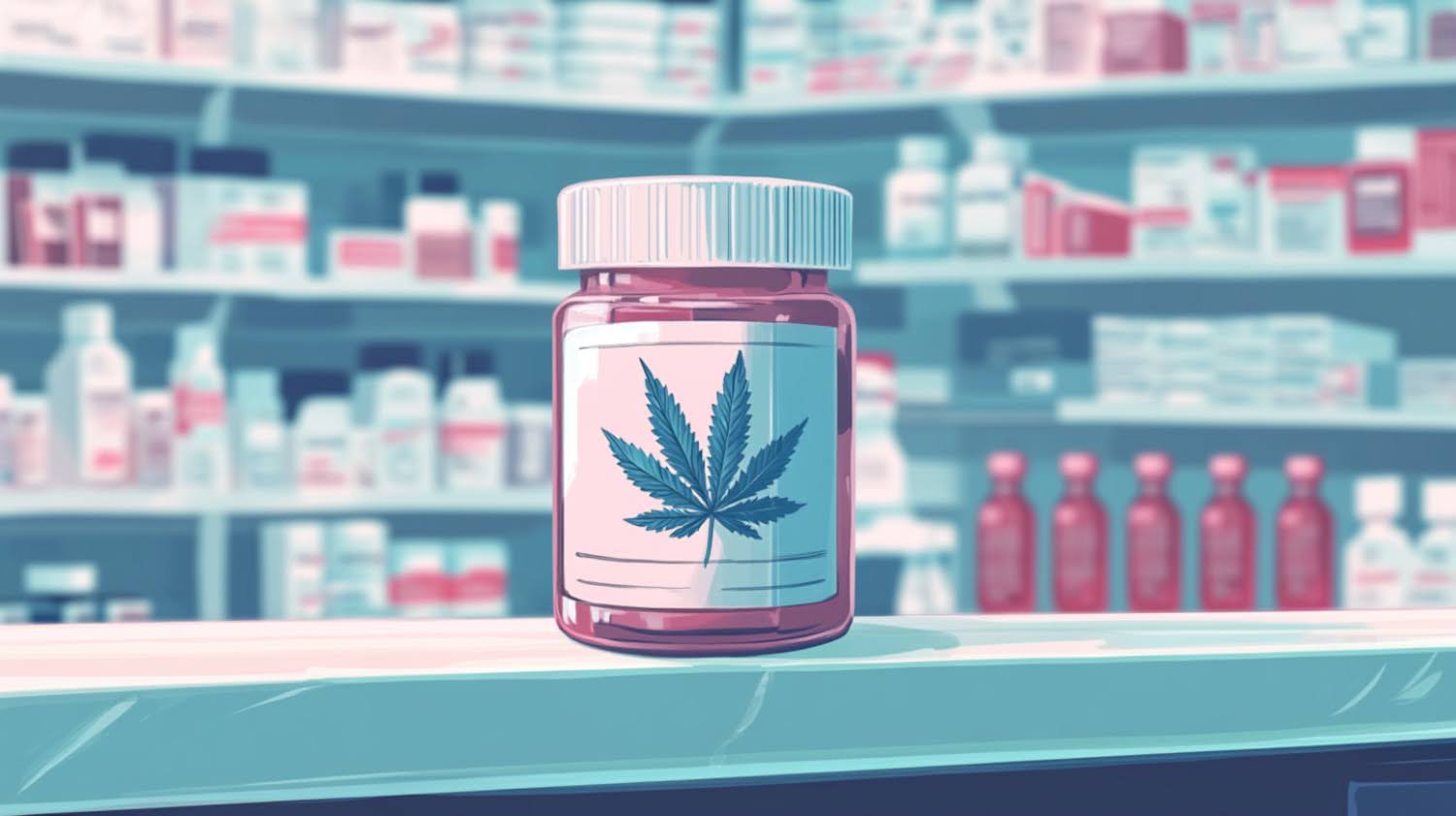In This Article
- Does Cannabis Help with Mental Health?
- Cannabis for Anxiety
- Cannabis for Depression
- Cannabis for PTSD
- Can Patients Get Medical Cannabis for Mental Health Conditions in the UK?
- Can Cannabis Interact With Mental Health Medications?
- Physicians Can Choose Between Flower, Edibles, Tinctures, and More
- Choosing Cannabis Flower
- Choosing Cannabis Capsules
- Choosing Cartridges
- How to Find the Right Products at the Pharmacy
- Ask Questions
- Share Your Preferences
- Start Low, Go Slow
- Does Medical Cannabis Help with Mental Health?
- Is Cannabis a Risk Factor for Psychosis?
- Are There Potential Drawbacks Associated with Cannabis Use?
Key Takeaways
- Medical cannabis is legal in the UK and may be used to treat some mental health conditions.
- To get a medical cannabis prescription, most patients see a doctor at a private clinic since the NHS doesn’t widely offer it yet.
- Cannabis affects everyone differently and comes in various forms – your doctor can help you choose the best one for your needs.
Medical cannabis is sometimes used in the UK to manage anxiety, depression, or PTSD.
Here’s how to start a conversation with your doctor about cannabis and other treatment options for mental health conditions.
Get Approved Online for Medical Cannabis Relief in the UK
100% Legal | Discreet Delivery | Ongoing Consultations
Does Cannabis Help with Mental Health?
Cannabis contains compounds like THC and CBD, which interact with the brain’s endocannabinoid system. Research suggests these cannabinoids may help regulate mood, stress, and memory, but their effects can vary depending on the condition and the person.
Cannabis for Anxiety
For anxiety, low doses of THC and CBD may help by calming the brain’s CB1 receptors. However, higher doses of THC may make anxiety worse for some people.1 CBD-dominant products are often recommended since they provide relief without the high.
Cannabis for Depression
THC may boost serotonin levels, which could improve mood, but high-THC strains can sometimes worsen symptoms for certain individuals.2 CBD, on the other hand, has shown promise in easing depressive symptoms without the risk of intoxication.
Cannabis for PTSD
For PTSD, cannabis may help by reducing the intensity of traumatic memories and promoting relaxation. THC and CBD activate receptors in the brain’s fear and memory centres, which could reduce symptoms like nightmares and hypervigilance.3
Can Patients Get Medical Cannabis for Mental Health Conditions in the UK?

Since 2018, medical cannabis has been legal in the UK, but getting a prescription isn’t easy.
While it’s prescribed for conditions like epilepsy, chronic pain, and multiple sclerosis, it can also be an option for mental health conditions like anxiety, depression, and PTSD when other treatments haven’t worked and the physician believes it's appropriate.
To access medical cannabis, patients must see a specialist doctor who can assess their condition and decide if it’s a good fit.
Private clinics are the main route for prescriptions since NHS options are still limited. This is because medical cannabis hasn’t been fully licensed or approved for widespread use, so it’s not something your GP can routinely prescribe.
Get Approved Online for Medical Cannabis Relief in the UK
100% Legal | Discreet Delivery | Ongoing Consultations
Can Cannabis Interact With Mental Health Medications?
CBD can affect how the body processes certain drugs, like antidepressants, antipsychotics, and pain medications. This can lead to higher levels of these drugs in your system, increasing the risk of side effects.
- Antidepressants: CBD can raise levels of SSRIs (like fluoxetine) or tricyclics (like amitriptyline), potentially causing drowsiness or other issues.4
- Antipsychotics: Medications like risperidone or quetiapine might interact with CBD, leading to dizziness or changes in heart rhythm.⁴
- Beta-Blockers: CBD can raise levels of drugs like propranolol or metoprolol, potentially causing low blood pressure, dizziness, or fatigue.⁴
- Pain Medications: Drugs like tramadol or naproxen can also be affected, increasing the risk of nausea or stomach problems.⁴
The bottom line? Be completely honest with your doctor about everything you’re taking, including cannabis. They can help you avoid dangerous interactions and ensure your treatment plan is safe.
Physicians Can Choose Between Flower, Edibles, Tinctures, and More
If a patient is approved for medical cannabis, their doctor will help find the right form. Here are a few basics about different types of cannabis products to help patients have fully informed discussions with their physician:
- Flower: Fast effects and precise dosing. In the UK, it’s only approved for vaporising, not smoking.
- Edibles: Long-lasting relief, but effects take longer to kick in. Discreet and easy to dose.
- Tinctures: Versatile. Can be taken under the tongue or added to food/drinks. Offers precise dosing and quick absorption.
- Capsules: Consistent dosing, tasteless, and easy to take.
- Cartridges: Pre-filled with cannabis oil and used with a vape pen. Convenient, portable, and fast-acting.
Choosing Cannabis Flower

Cannabis flower contains two main compounds: THC and CBD. THC causes a high, while CBD is non-intoxicating and often used for its calming effects. Strains with lower THC and higher CBD may work better for some people since they can provide relief without the strong intoxicating effects.
Terpenes, the compounds that give cannabis its smell and taste, can also influence its effects. For example, some terpenes may feel relaxing, while others could feel more uplifting.
In the UK, medical cannabis flower is only approved for vaporisation, not smoking. Vaporising heats the flower gently, releasing the active compounds without burning them. The compounds are absorbed quickly through the lungs, allowing patients to titrate their dose to their tolerance more quickly.
When prescribing cannabis, many physicians consider the terpene profile of the strain they recommend. Many patients find it helpful to keep a simple journal or record notes on their phone to track how different strains make them feel. This can help provide the physician with clues about which product works best.
Choosing Cannabis Capsules
Capsules are a simple and discreet way to take medical cannabis. They contain measured doses of cannabis oil, so patients know exactly how much they’re getting each time. This makes capsules a good option for patients and their physicians who prefer consistency and ease.
Capsules are tasteless and odourless, so they’re easy to work into an existing schedule. They’re also a great choice for patients who want an administration method that doesn’t draw attention or require additional devices like vaporisers.
When prescribing medical cannabis, physicians consider the THC/CBD ratio in the capsules they recommend. For example, a 1:1 ratio of THC to CBD may work well for balanced relief, while a higher CBD ratio could be better for calming effects.
Choosing Cartridges
Cartridges are small, discreet, and easy to use. They screw onto a vape pen, which heats the oil for inhalation. Vaporising the oil allows for quick absorption, so patients can feel the effects almost immediately.
Their compact size makes them easy to carry in a bag or pocket, so they can be used whenever needed. Unlike flower, cartridges don’t require grinding or preparation. Just attach them to a vape pen and they’re ready to go.
How to Find the Right Products at the Pharmacy
In the UK, medical cannabis is prescribed by a specialist doctor who will recommend the best product for your needs if you qualify. It’s still helpful to go into your consultation prepared. Here’s how to make the most of it:
Ask Questions
- What product or strain is best for my condition?
- What’s the THC/CBD ratio, and how will it affect me?
- Could it interact with my current medications?
Share Your Preferences
- Let your doctor know if you prefer oils, capsules, or flower.
- Mention any concerns about dosing, side effects, or lifestyle needs.
Start Low, Go Slow
- Your doctor will likely start you on a low dose and adjust as needed.
- Keep track of how you feel and share updates during follow-ups.
Does Medical Cannabis Help with Mental Health?
Researchers are still studying the impact of medical cannabis on conditions like anxiety, depression, or PTSD. Patients can respond to the same cannabis product and dose in different ways. So while some studies suggest potential benefits, further study is needed.
Is Cannabis a Risk Factor for Psychosis?
Genetics are the main risk factor for psychosis, but cannabis (particularly high-THC strains) may make symptoms worse for some people.
Are There Potential Drawbacks Associated with Cannabis Use?
Cannabis use disorder (CUD) is the most common issue linked to heavy or frequent cannabis use.5 Withdrawal symptoms like anxiety, irritability, and sleep issues may last up to 2–3 weeks.6 Doctors can help patients experiencing withdrawal and adjust dosage as needed.
Get Approved Online for Medical Cannabis Relief in the UK
100% Legal | Discreet Delivery | Ongoing Consultations
- Sharpe L, Sinclair J, Kramer A, de Manincor M, Sarris J. Cannabis, a cause for anxiety? A critical appraisal of the anxiogenic and anxiolytic properties. J Transl Med. 2020;18(1):374. Published 2020 Oct 2. doi:10.1186/s12967-020-02518-2 ↩︎
- Feingold D, Weinstein A. Cannabis and Depression. Cannabinoids and Neuropsychiatric Disorders. 2020;1264:67-80. doi:https://doi.org/10.1007/978-3-030-57369-0_5 ↩︎
- Nacasch N, Avni C, Toren P. Medical cannabis for treatment-resistant combat PTSD. Frontiers in psychiatry. 2023;13. doi:https://doi.org/10.3389/fpsyt.2022.1014630 ↩︎
- Balachandran P, Elsohly M, Hill KP. Cannabidiol Interactions with Medications, Illicit Substances, and Alcohol: a Comprehensive Review. J Gen Intern Med. 2021;36(7):2074-2084. doi:10.1007/s11606-020-06504-8 ↩︎
- Connor JP, Stjepanović D, Le Foll B, Hoch E, Budney AJ, Hall WD. Cannabis use and cannabis use disorder. Nat Rev Dis Primers. 2021;7(1):16. Published 2021 Feb 25. doi:10.1038/s41572-021-00247-4 ↩︎
- Connor JP, Stjepanović D, Budney AJ, Le Foll B, Hall WD. Clinical management of cannabis withdrawal. Addiction. 2022;117(7):2075-2095. doi:10.1111/add.15743 ↩︎
The information in this article and any included images or charts are for educational purposes only. This information is neither a substitute for, nor does it replace, professional legal advice or medical advice, diagnosis, or treatment. If you have any concerns or questions about laws, regulations, or your health, you should always consult with an attorney, physician or other licensed professional.




